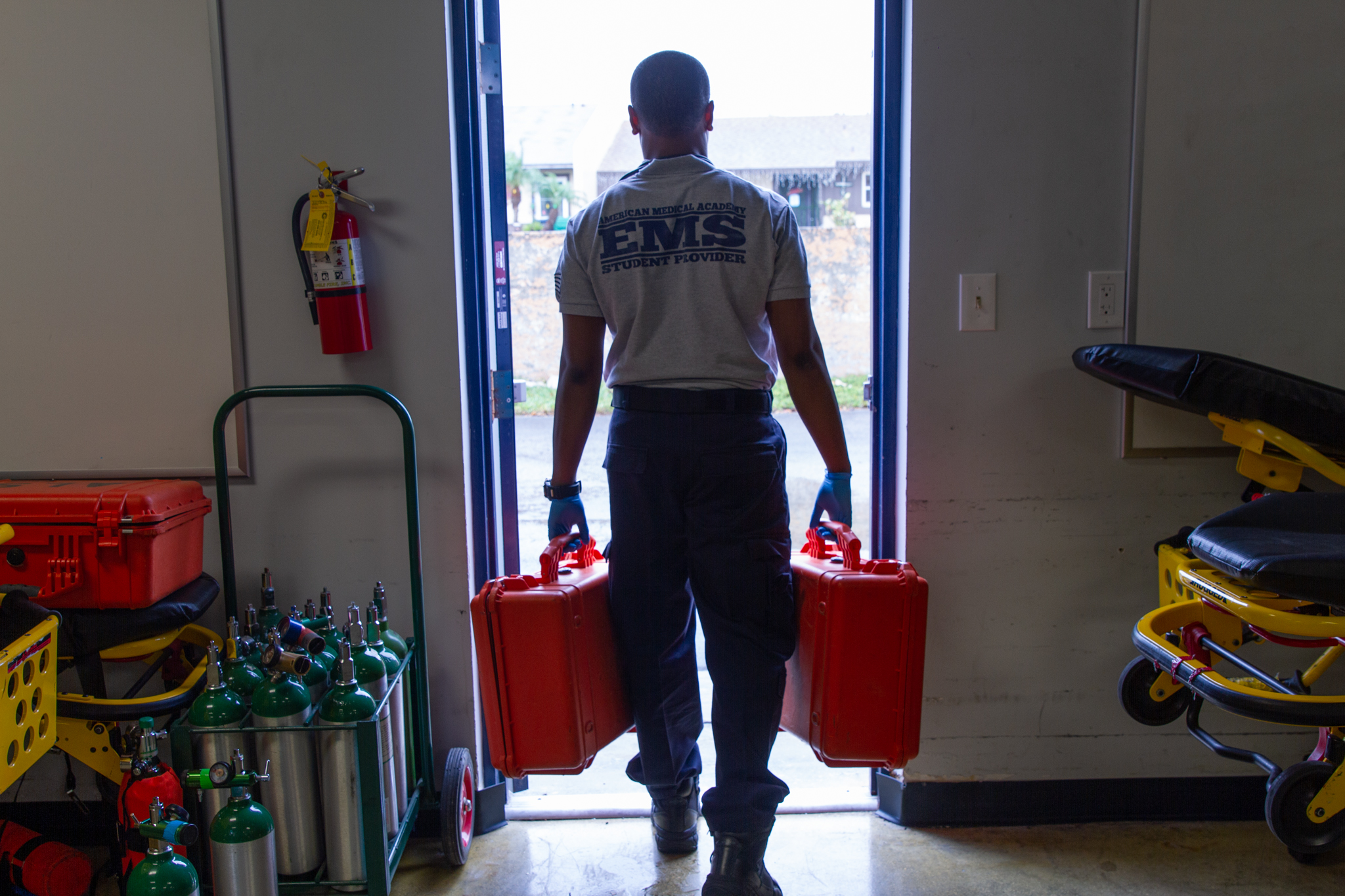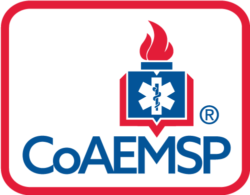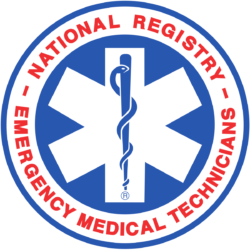
The Paramedic Program’s advanced-level curriculum is intended to prepare students to properly function on an Ambulance, Fire Rescue Department, and Aero Medical Service in a pre-hospital setting, or Hospital Emergency Room. Paramedics perform all skills at the BLS level, in addition to invasive advanced skills such as IV administration, medicine administration, interpretation of heart rhythms-EKG and advanced airway management. Further training in the Emergency Medical Services field is necessary to meet all of the requirements for a student to be issued an EMT-Paramedic Diploma. Upon successful completion of course, students will be eligible to take the National and Florida State Examination for licensure at the Paramedic Level.
Program Details
Program Hours:
1,122 Clock Hours
Program Length:
38 Weeks
Program Award:
Diploma
Take the Next Step in Your Career
Program Summary
2023 Program Outcomes
- NREMT/State Written Exam Pass Rate: 71%
- Retention Rate: 74%
- Positive (Job) Placement Rate: 83%
2024 Program Outcomes
- NREMT/State Written Exam Pass Rate: 71%
- Retention Rate: 95%
- Positive (Job) Placement Rate: 87%
Program Goal

Admission Requirements
In order to be eligible for registration, students must be at least 18 years old and possess all of the following:
- High school diploma, GED, or equivalent (Post Secondary / College Transcripts CANNOT be used for registration purposes)
- Valid Florida Driver’s License or Valid Florida State ID
- Valid Florida EMT State License
- Valid CPR certification (BLS for Healthcare Providers through American Heart Association)
- Completed “Physical Form”, or its equivalent, signed by a physician (dated within 1 year from chosen start date)
- TB Skin Test & Results (dated within 1 year from chosen start date)
- Updated Immunization Record (MMR, Varicella, Hepatitis B) *Hepatitis B is not required, but it is recommended*

Program Objectives
Upon successful completion of this paramedic course, the student shall be able to:
- Recognize the nature of a patient’s illness or the mechanism of injury, evaluate its seriousness, and determine the need for care, assistance, and mode of transportation.
- Give the appropriate emergency treatment necessary to stabilize the patient’s condition.
- Evaluate the patient’s response to treatment and determine whether further interventions are needed.
- Use proper lifting techniques to move the patient in order to minimize patient discomfort and injury.
- Transfer the patient safely to the appropriate medical facility and give an accurate account of patient’s ailment and status to the health professional that is taking over the patient care.
- Obtain a relevant history of the patient’s illness or injury, perform a pertinent physical examination, reach an appropriate conclusion regarding the implications of the clinical findings for appropriate treatment on the scene
- Manage both trauma and medical patients properly in the pre-hospital setting.
- Give accurate verbal and written reports, communicate via emergency radio, know the standard operating procedures for emergency vehicle and medical equipment, and the ability to properly control the emergency scene and perform basic extrication.
- Provide advance life support as necessary.
- Demonstrate the ability to comprehend, apply, analyze, and evaluate information relevant to their role as entry level EMT-Paramedic.
- Demonstrate technical proficiency in all skills necessary to fulfill the role of entry level EMT-Paramedic.
- Demonstrate personal behavior that is consistent with the expectations of professional employers within their prospective field of certification.

| Quick Facts: EMTs and Paramedics | |
|---|---|
| $35,400 per year $17.02 per hour |
|
| Postsecondary nondegree award | |
| None | |
| None | |
| 265,200 | |
| 6% (Faster than average) | |
| 17,000 | |
U.S. BUREAU OF LABOR STATISTICS
Curriculum
Accreditation & Membership








Curriculum
PM-100 / Paramedic - Lecture/Lab I: 200 Clock Hours*
This course includes: Introduction and Medical Terminology (includes 4 hours of Florida AIDS/HIV Education), Anatomy & Physiology, Patient Assessment, Fluids & Shock, Pharmacology, Respiratory and Airway, Cardiology (includes Advanced Cardiac Life Support certification)
PM-101 / Paramedic - Lecture/Lab II: 322 Clock Hours*
This course includes: Trauma (includes Pre-Hospital Trauma Life Support), Medical Emergencies, Obstetrics & Gynecology, Behavioral Emergencies, Pediatrics (includes Pediatric Advanced Life Support certification), Emergency Scene Operation and Structural Review.
PM-102 / Paramedic - Hospital Clinical: 200 Clock Hours
Students complete supervised hospital clinical in the Emergency Department, Operating Room, Labor and Birth, Medical Examiners, Trauma Center, Intensive Care, Pediatrics, and the Psychiatric Ward. This course is designed to allow the student to practice skills learned in the classroom on actual patients.
PM-103 / Paramedic - Ambulance/Rescue Field Experience: 400 Clock Hours
Students complete a supervised field experience and are assigned to a local fire department rescue squads, ambulances and fire apparatus. This course is designed to orientate the student with the roles of the Paramedic in the field setting. The rescue/ambulance rotation allows the student to perform skills learned in the classroom on actual patients.
Each clock hour is defined as 50 minutes of classroom session in any field, lab, lecture or clinical setting. Semester credits are defined as 15 hours of theory equal 1 semester credit, 30 hours of lab equal 1 semester credit, and 45 clock hours of clinical externship equal 1 semester credit.
Dates: 6/25/2025
Time: Wednesday’s 9:00am to 6:00pm & Friday’s 9:00am to 1:30pm
*Mandatory Orientation will be held on TBD
Dates: 8/18/2025 – 6/8/2026
Time: Monday 9:00am to 6:00pm & Wednesday 9:00am to 1:30pm
Dates: 8/18/2025 – 6/8/2026
Time: Monday, Tuesday & Wednesday 6:00pm to 10:30pm

American Medical Academy
12215 SW 112 Street
Miami, Florida 33186
Phone: (305) 271-6555
Email: info@ama.edu
